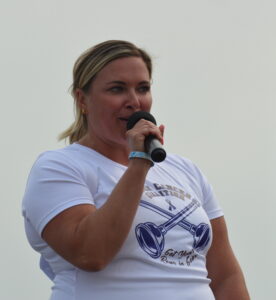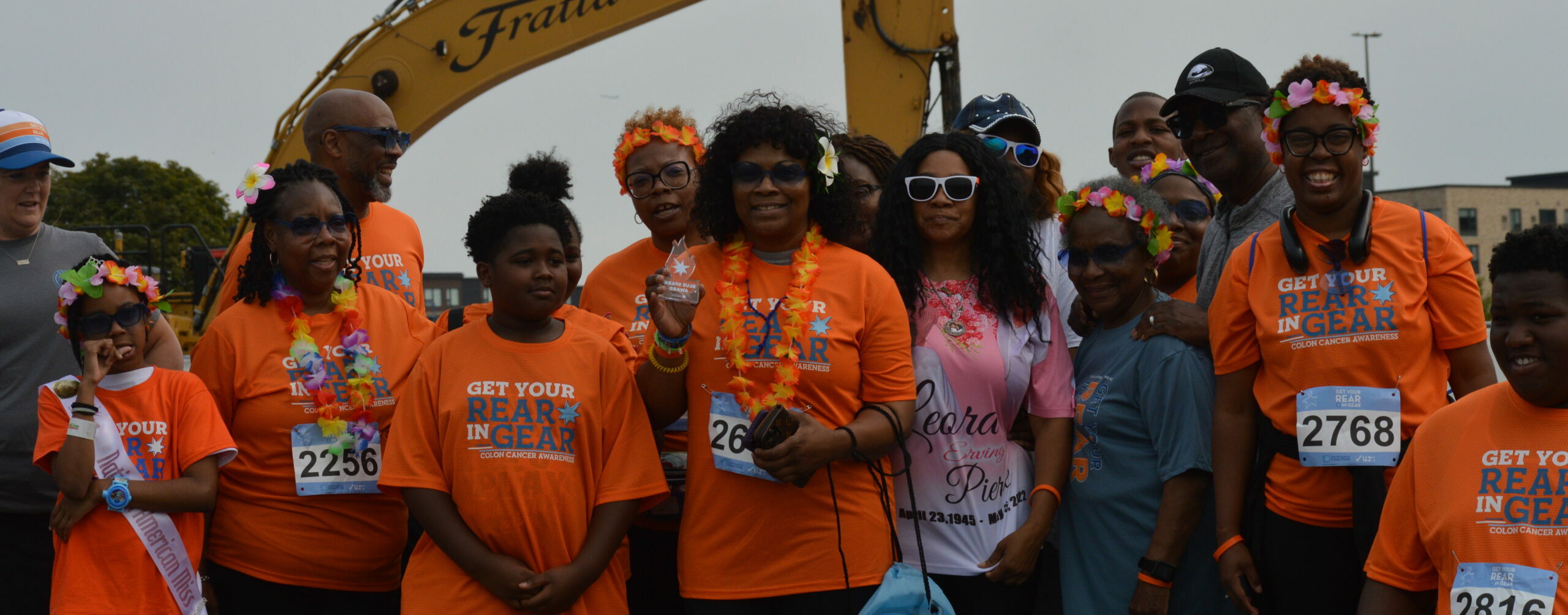
While we work to get communities screened and educated, we recognize the dire need to understand the root cause of colorectal cancer disparities, early onset, and how we can better support patients. We provide critical funding for researchers to find out why younger generations need to be screened earlier for colorectal cancer.
 At the Medical College of Wisconsin in Milwaukee, researchers have started the collection for a tissue bank, a repository that holds tissue samples of cells and tumors from cancer patients.
At the Medical College of Wisconsin in Milwaukee, researchers have started the collection for a tissue bank, a repository that holds tissue samples of cells and tumors from cancer patients.
These tissue samples give doctors a glimpse into what the tissue looked like before treatment and after. This provides doctors with the ability to try new treatments, and change tactics when a treatment isn’t working. Not only will this tissue bank improve treatment, but provide other researchers the opportunity to evaluate why certain cancer treatments are effective on one type of tumor, but not others.
Thanks to our grant funding, the ability to optimize treatments in accordance to how rectal tumors react will assist in patients quality of life by providing the most effective treatment first, and potentially shortening treatments for some patients.
Similar to our work in Milwaukee, we work with renowned medical researcher Dr. Cathy Eng at Vanderbilt University in Nashville, TN. At Vanderbilt, Dr. Eng and her team have started the Young Adults with Cancer Program, a cancer center focused on improving cancer outcomes in young adult patients. The mission of this program is to provide young adults with the support needed to navigate their cancer diagnosis.
This unique program supports these patients and survivors by providing them with a multi-speciality care team, made up of nurses, social workers, spiritual leaders, dieticians, research scientists, physicians, and wellness experts. This personalized focus to care helps answer questions that patients in the program have including assistance with fertility, financial difficulties, and loneliness, while also giving researchers information that can assist with the identification of cause, treatment, and the long-term impact of cancer on younger patients.
Through our support, the program has been able to create a shared clinical database, providing data that can be used in future projects, and support peer reviewed publications. In addition, our grant supports the Young Adults with Cancer Program webpage, where those impacted by early-onset cancer diagnosis can share their story.
Through initiatives like the Young Adults with Cancer Program at Vanderbilt, we’re helping institutions impact their communities not just through scientific discovery, but by providing education and support to patients.
The research we support at the University of Minnesota seeks to provide patients with a higher quality of life during treatments through research conducted by Dr.Gupta on Time Toxicity.
The concept of time toxicity is relatively new, but patients have long understood time toxicity and its impacts on their lives. Entire days can be lost to cancer treatments, working with insurance providers, and in hospital waiting rooms. That means time lost that could be spent with family and friends, and doing the events that really matter to quality of life for cancer patients.
Through this research, Dr. Gupta seeks to understand how insurance companies, oncologists, surgeons, and care teams, can best approach appointments and insurance conversations to take the daily burden off of patients and their families.
“New treatments come out every month, and with that patients are living longer and getting cured. As we do this, It’s on us to make sure our patients live better– not just longer…” Dr. Gupta said at the 2023 Minnesota Colorectal Cancer Research Gala.
Dr. Gupta continued, “[the time] these treatments need can be incredibly burdensome. They require you to come to the infusion center daily for labs, scans, infusions, visits with the oncologist, procedures…Time is also spent in long drives, waiting rooms, and parking lots, and it’s spent on hold with annoying insurance companies. It’s not just the patient’s time spent. It’s friends, and families who have to take off work for childcare or eldercare. And it’s all of these time related burdens that we consider the time toxicity of cancer treatments.”
Through this research and understanding how much time patients spend within the healthcare system – in the waiting rooms, infusions, on calls with insurance providers – will allow cancer patients and their providers to make informed decisions about their care, especially as end of life nears, and time with friends and family becomes a stronger priority.
“My family is definitely impacted by the sheer volume of my appointments and scheduling our day-to-day activities around scans and other treatment needs.” said colorectal cancer patient Bridgette O’Brien. “My husband is my #1 caretaker, and has accompanied me on many of my healthcare appointments…It’s stressful to keep up with all of our schedules between working, work travel, kids activities, and appointments each month. I’ve also missed out on time with my kids and family throughout the years – whether it’s playtime, school events, or sports.”
By getting communities screened on time, we save lives. But by providing funding for research initiatives, we ensure future generations have access to comprehensive, competent, and compassionate care.
PATIENT SUPPORT ABOUT US EDUCATION AND AWARENESS


